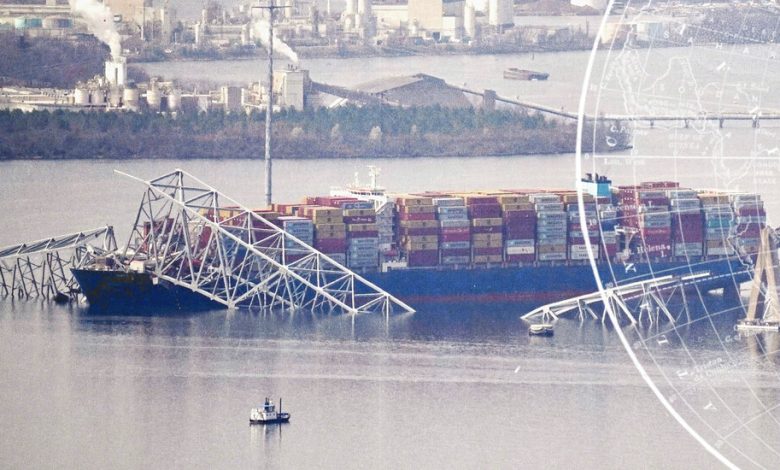The Baltimore Bridge Collapse Will Strain America’s Ports. It’s Time to Strengthen Them.

The immediate impact of the collapse of the Francis Scott Key Bridge in Baltimore on Tuesday was viscerally clear: In minutes, the Baltimore Harbor went from a humming logistics hub to a chaotic search and rescue operation. Two construction workers who had been fixing potholes on the bridge were pulled from the water, with six more missing and presumed dead.
As a native of Maryland, I grew up driving through the Baltimore Beltway with my family to see the Orioles play at Camden Yards, which is near Baltimore’s Inner Harbor. Seeing container ships sail through the port was one of my earliest memories of global shipping.
Last year, the Port of Baltimore processed 1.1 million 20-foot containers worth of cargo, making it the ninth busiest port based on trade volume in the United States and the most important port serving our nation’s capital. It’s also the busiest U.S. port for car shipments, with more than 800,000 vehicles moving through its waters onto its docks and across its roads and railways in 2023.
As rescue workers and salvage crews work tirelessly to recover bodies and restore access to the harbor, our national supply chain is kicking into high gear to absorb the aftershock of the bridge collapse. Ship traffic to the Port of Baltimore is being rerouted to nearby ports, including one in Norfolk, Va., and the Port of New York and New Jersey. These changes come at a time when global supply chains are already stressed, with ships changing course to avoid Houthi attacks in the Red Sea and low-water restrictions limiting capacity through the Panama Canal. The looming contract expiration for the International Longshoremen’s Association in September also creates uncertainty for businesses that rely on cargo sent by sea.
As a result of all this precarity, many companies that typically move goods through East Coast ports are already asking about rerouting their cargo through West Coast ports, opting to truck or rail the goods across the country to avoid delays. Ports around the country are preparing to absorb a surge in volumes as companies reroute around the Port of Baltimore and avoid the East Coast more generally.
